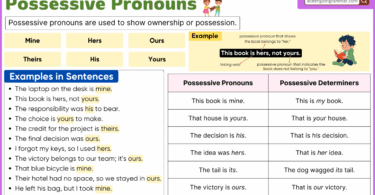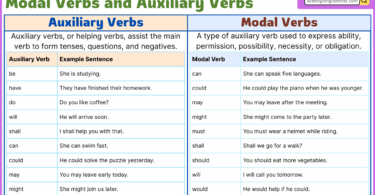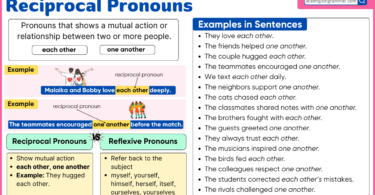In English grammar, adjectives are used to describe nouns or pronouns. While many adjectives can express different degrees of intensity (such as “cold,” which can become “very cold”), there is a specific type of adjective that cannot be intensified or reduced in meaning. These are known as non-gradable adjectives. Understanding non-gradable adjectives in English, how they differ from gradable adjectives, and how to use them correctly.
Table of Contents
What Are Non-Gradable Adjectives?
Non-gradable adjectives are adjectives that describe absolute, unchangeable qualities. These adjectives represent qualities that cannot vary in intensity, meaning something either is or is not that quality. For example, adjectives like freezing, perfect, and dead describe states that cannot be made more or less intense.
You cannot say that something is very perfect or slightly dead. It is either perfect or it is not.
Non-gradable adjectives contrast with gradable adjectives, which allow for variations in degree (like happy, which can be “a little happy,” “very happy,” or “extremely happy”).
Common Non-Gradable Adjectives
Let’s look at some of the most frequently used non-gradable adjectives:
| Non-Gradable Adjective | Example Sentence |
|---|---|
| Freezing | The water was freezing after the storm. |
| Perfect | Her performance was perfect. |
| Dead | The plant is dead, no chance of revival. |
| Impossible | Solving this puzzle is impossible. |
| Married | They have been married for ten years. |
| Unique | This is a unique piece of art. |
As you can see, these adjectives describe states that are either true or false without room for variation. Something cannot be more or less dead or married.
Using Intensifiers with Non-Gradable Adjectives
One common mistake learners make is using inappropriate intensifiers with non-gradable adjectives. While gradable adjectives can take intensifiers like very, quite, and somewhat, non-gradable adjectives require intensifiers that emphasize absolute states.
Correct intensifiers for non-gradable adjectives include:
- Absolutely
- Totally
- Completely
- Utterly
Let’s explore how these intensifiers work with non-gradable adjectives:
| Non-Gradable Adjective | Correct Intensifier | Example Sentence |
|---|---|---|
| Freezing | Absolutely | The water is absolutely freezing. |
| Perfect | Totally | Her performance was totally perfect. |
| Impossible | Completely | The task was completely impossible. |
| Dead | Utterly | The battery is utterly dead. |
Avoiding Incorrect Intensifiers
Since non-gradable adjectives express absolutes, it is incorrect to use intensifiers like very or quite with them.
Incorrect: The solution was very perfect.
Correct: The solution was absolutely perfect.
Incorrect: The weather was quite freezing.
Correct: The weather was completely freezing.
Non-Gradable Adjectives vs. Gradable Adjectives
The key difference between non-gradable adjectives and gradable adjectives lies in whether or not the adjective can express different degrees of intensity.
| Gradable Adjectives | Non-Gradable Adjectives |
|---|---|
| Hot, cold, difficult | Freezing, impossible |
| Very cold, quite hot | Absolutely freezing |
| More beautiful, less happy | Completely impossible |
Gradable Adjectives
- Cold: The temperature can be slightly cold, very cold, or extremely cold.
- Happy: Someone can be a little happy, very happy, or extremely happy.
Non-Gradable Adjectives
- Freezing: The state of being freezing is absolute. You cannot say very freezing; instead, use absolutely freezing.
- Unique: Something is either unique or not. It cannot be very unique.
Special Cases: Non-Gradable Adjectives in Colloquial Speech
In informal or colloquial English, you might hear non-gradable adjectives modified in ways that break traditional grammar rules. For instance, people sometimes say very dead or really unique. While this is common in spoken English, it is not considered grammatically correct in formal writing or academic settings.
In everyday conversation:
- You might hear: The party was really dead.
- In formal writing: The party was completely dead.
Examples of Non-Gradable Adjectives in Context
With Intensifiers:
- The answer is absolutely impossible to understand.
- Their house is totally unique.
Without Intensifiers:
- The animal was dead when the rescue team arrived.
- His behavior was perfect during the interview.
Incorrect Use of Gradable Intensifiers:
- Incorrect: The test was very impossible.
- Correct: The test was utterly impossible.
How to Ask Questions with Non-Gradable Adjectives
When forming questions with non-gradable adjectives, it’s important to recognize that the quality described is absolute. Therefore, use appropriate intensifiers and avoid gradable language.
- Is this absolutely necessary?
- Was the weather completely freezing yesterday?
Common Mistakes with Non-Gradable Adjectives
Learners often confuse non-gradable adjectives with gradable adjectives, leading to incorrect use of intensifiers. Here are a few common mistakes to avoid:
1. Using Gradable Intensifiers
Since non-gradable adjectives describe absolute qualities, using intensifiers like very or quite is grammatically incorrect.
Incorrect: The artwork is quite unique.
Correct: The artwork is absolutely unique.
2. Overuse of Non-Gradable Intensifiers
While intensifiers like absolutely and utterly work well with non-gradable adjectives, overusing them can make your writing sound repetitive.
- Instead of: The cake was absolutely perfect, the weather was absolutely freezing, and the party was absolutely amazing.
- Try: The cake was perfect, the weather was freezing, and the party was amazing.
Read More




